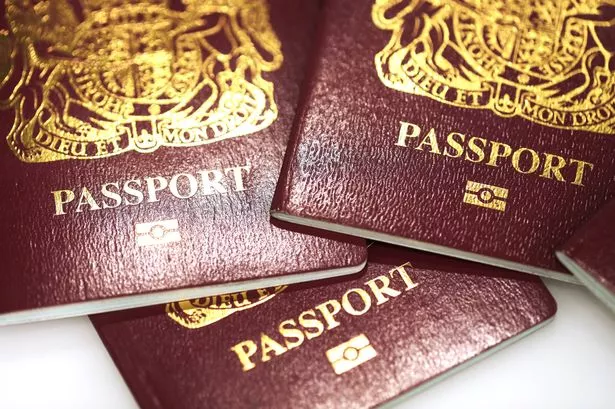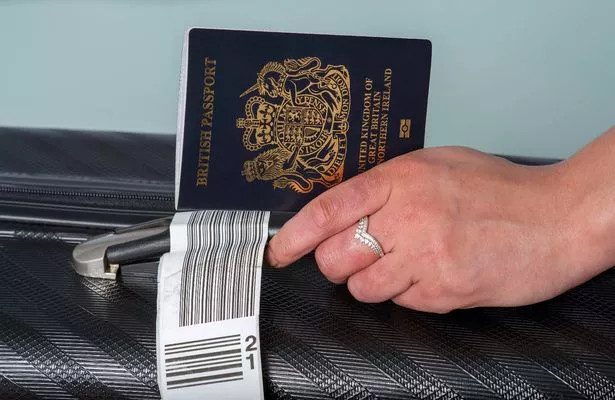Holidaymakers with passports issued before Britain left the EU have been urged to check their travel documents before they jet off to avoid trouble at airports
Brits who are still in possession of the old-style burgundy passports have been urged to carry out some “vital checks” before they fly off on their holidays this year. Shortly after Brexit, the UK ditched its European Union-labelled passports in favour of the new dark blue ones in March 2020, yet many people are still in possession of the old passports to this day.
This is because adult passports are issued for 10 years, and as such it will not be until roughly March 2030 before the old burgundy passports disappear from public view forever.
In light of this, a crucial warning has been issued to those with the old-style passports, as certain circumstances could render them invalid for travel.
A TikTok video by Rudge Daily has highlighted the importance of making “vital checks” on your passport, particularly when it comes to the issue and expiry dates.
The warning stated: “There’s a high chance the old coloured documents break travel rules, so anyone who owns one is urged to make vital checks well in advance. The two most important details to check are your passport’s issue date and expiry date.”
For those planning a trip to EU countries, it’s crucial to ensure your passport is less than 10 years old and valid for at least three months beyond your planned return date.
The video went on: “Brits going on their holidays continue to be caught out by the rules, as research found that fewer than 50% of people are aware of the 10-year cut-off before 2018.”
Before 2018, UK passports could carry an extra nine months valid from their last passport, meaning travellers could technically have a document that’s valid for 10 years and nine months.
In this example, if a passport was issued in 2015, people might still have five months left and be allowed to carry on travelling under the three-month rule. But as your passport was issued more than 10 years ago, you would still not be able to travel within the EU.
According to Rudge Daily: “While you might still have plenty of time left before the expiry date, it is more likely to be over 10 years old and therefore invalid for EU travel. If you’re going abroad, it’s always best to just quickly Google the passport rules for [the country you’re visiting].”
The issue primarily impacts those still holding the old burgundy passports, as blue ones only started being rolled out from 2020, giving at least a decade of trouble-free travel within the EU.
Parents have also been advised to check their children’s passports, even if they have blue ones, as they typically last five years.
Passport rules in non-EU countries
The passport requirements vary depending on your destination. For instance, in the US and Canada, your passport must be valid for the duration of your stay, but there’s no need for the three-month buffer.
However, it’s advised to have an additional six months validity to avoid any potential issues.
New Zealand’s rules mirror those of the EU, requiring your passport to be valid for at least three months beyond your intended departure date. Meanwhile, Australia insists that your passport should be valid for a minimum of six months from your entry date into the country.
Countries such as Thailand, China, Indonesia, India and the United Arab Emirates all adhere to the same guidelines as Australia. Japan, on the other hand, only requires your passport to be valid for the entirety of your stay.
The Post Office suggests having extra validity just to be safe, although Japan doesn’t mandate it for travel.

